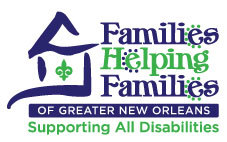17 Ways Special Needs Parents Can Strengthen Their Relationship
Maintaining a strong, healthy relationship with your spouse or partner can be very difficult when you are a parent of a child with special needs. Here are some tips on how to strengthen your relationship.
Source: Special Needs Resources
Friends – Connecting People with Disabilities and Community Members
This 84-page guide, developed by the University of Minnesota’s Research & Training Center on Community Living, Institute on Community Integration, includes self-directed activities designed to help students with disabilities better understand and value the gifts and interests they bring to relationships.
Source: University of Minnesota’s Research & Training Center
Healthy Relationships, Sexuality and Disability – Resource Guide
Learning to access sex education and talk openly and honestly about sexual health is an important part of growing up. Young people who understand their own bodies, rights, and experiences may find it easier to communicate their needs and have them respected. This resource guide provides you with information about how to grow up healthy and safe.
Source: Massachusetts Department of Public Health
Relationship Building for Couples who have ADHD
Couples that are fighting tend to spend a lot of time thinking about heavy topics that pull them apart. Oftentimes, they forget about the strengths that brought them together in the first place. Talking about shared values, experiences, and beliefs can help a couple remember why they’re fighting for their relationship. The Relationship Building: Shared Qualities worksheet can help to nudge the conversation in a positive direction, while highlighting important strengths.
Source: www.therapistaid.com
(Sex)abled: Disability Uncensored
We love this 15-minute documentary about sexuality and disability, produced by Health Equity Institute. It playfully and directly addresses stereotypes that hinder sexual growth. It covers topics and contains language that some may find offensive or shocking. We like it because it takes on intimate and tough topics around sex and disability in an honest and funny manner that will resonate with many youth.
Source: Health Equity Institute
